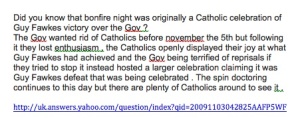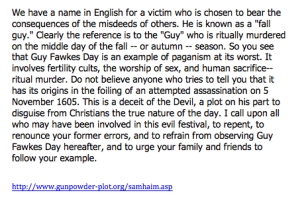We’ve all heard the stories, but how likely is an audience death during a concert?
Well, listen closely.
According to the UK Office for National Statistics the fashionable mortality rates (for 2010) are roughly as follows:
 Although the number of deaths are well recorded, we do have to be selective and take into account the fact that only ‘sudden non-accidental deaths’ are likely to occur within the gentile confines of the concert hall; thus ruling out things like homicide and bear-maulings. Also nothing that would have prevented a person going from the concert hall in the first place.
Although the number of deaths are well recorded, we do have to be selective and take into account the fact that only ‘sudden non-accidental deaths’ are likely to occur within the gentile confines of the concert hall; thus ruling out things like homicide and bear-maulings. Also nothing that would have prevented a person going from the concert hall in the first place.
With my decidedly non-medical opinion I made use of this handy mortality statistics graph to work out that there are around 133963 potentially ‘sudden non-accidental’ (hereafter referred to as ‘sudden’) deaths each year (well…2009 and in the UK). Thus accounting for about 27.264% of all deaths.
Next we have to make an assumption that these are spread evenly across all age groups because I am unashamedly lazy. Having achieved this, we can work out the probable numbers of sudden death for each age group. We get this:
Actual figures are a bit fuzzy for accurate age-demographics so let’s approximate and say it was equal (6264100 people each) except for the 80+ group which is significantly less – let’s guess half as populous (3132050 people each). Now we can say the average likelihood of someone dying in a given year:
…and in a given hour in that year:
(For example, if you have 47662 men over age 80 in a room for an hour, one of them will die of sudden causes.)
Now in terms of the average concert age there is obviously much variation, but generally there seems to be a vague consensus that the median age of classical concert audiences is over 50, with a 10-year study of classical radio showing listeners have a median age over 65. For this study I will assume that 60 is the average age and that half any given audience will be in these higher risk categories.
So in an audience of 1000 watching a concert of an hour, here are your mortality statistics (last table I promise!)
 Ergo(!) there is 0.5349% chance (roughly one in 200) that for every thousand people per hour at a classical concert, there will be someone in the audience who does not applaud at the end.
Ergo(!) there is 0.5349% chance (roughly one in 200) that for every thousand people per hour at a classical concert, there will be someone in the audience who does not applaud at the end.
Thank you for bearing with me! Now for some fun facts 😀
- If you assume that everyone at your concert is over 60 and half are over 80, there is a 2.6468% chance of fatality! (1 in 38 concerts).
- If a 1000-people strong concert contained something appropriate like the Chopin Piano Sonata No.2 there is a 0.0007429% chance that someone will die in the 5 seconds of silence before the famous funeral march. (1 in 134607 concerts)
- Similarly, the odds of that person being the pianist (if they are under 60) are 1 in 112.700 trillion.
- Assuming the performers are under 60, the odds of any performer dying during a concert is roughly 1 in every 156.5 billion. Musicians dying on stage thusly has happened before; it’s not as unlikely as you might think given that there are now a lot of musicians in the world and each of them putting in a lot of performance hours.
- In Pablo Casal’s questionable* autobiography he mentions an orchestra in the Caucasus Mountains in the Soviet Union made up ENTIRELY of male members over 100 years of age. In the UK over 90s are currently 11% of the over 80 population according to the Office for National Statistics. According to a very approximate regression from this data, it seems that over 100’s die at a rate of 10% a year (1 every 876.6 hours). Therefore, in this 70-piece, 100+ Aged orchestra, 1 in every 125 concerts would experience a musician fatality.
- Alternately, in their rehearsals (if they were weekly and two hours long) it would happen about once a year.
So there you have it. Highly inaccurate statistics but at least you get a rough idea.
* I say questionable about Casals’ autobiography because, like Grizzly Man, you read/watch the story and end up liking him less and less, realising that here is a person who doesn’t realise that they are fundamentally unreasonable, and in this case, a massive diva. If you don’t believe me the whole thing is here. Or one particular excerpt where he refuses to play because the conductor doesn’t like the music and then drags Debussy into the argument and finds himself isolated in his opinion:
The conductor, Gabriel Pierne, and I had agreed some weeks previously that I would play the Dvorak concerto. Shortly before the rehearsal was to start, Pierne came to my dressing room to go over the score and discuss my approach to the work. Something in his manner struck me as odd-he seemed almost uninterested in what we were discussing, but I thought he was probably preoccupied with other matters. Then, all at once, he tossed the score down and exclaimed with a grimace, “What a ghastly piece of music!” I thought at first he was being facetious-I couldn’t imagine his really meaning such a thing. He was, after all, a composer himself who had studied under Massenet and Cesar Franck. But he added, “It’s hardly worth playing. It’s not really music at all.” He said it in such a way that there was no doubting he was serious.
I stared at him incredulously. “Are you out of your mind?” I said. “How can you talk that way about such a magnificent work?” Didn’t he know, I asked, that Brahms considered it a classic and said he himself would have composed a concerto for the cello if he’d known such effects were possible?
Pierne shrugged. “What of it? Was Brahms infallible? You’re enough of a musician to know how bad the music is.”
I was almost speechless with anger. “If that’s the way you feel about the work,” I said, “then you’re clearly not capable of conducting it. Since I happen to love the music, I couldn’t take part in its desecration. And I won’t. I refuse to play.”
Members of the orchestra began pressing around us. Someone said the hall was full, and it was time to go onstage. Pierne told me, “Well, we have no choice. You’ll have to play.”
“On the contrary,” I said, “I’m going home.”
Pierne rushed onstage. He stood there with his hands raised, his hair and beard disheveled. He declared dramatically, “Pablo Casals refuses to play for us today!”
A great commotion broke out in the hall. I wanted to explain what had happened, but I couldn’t make myself heard above the din. People started crowding onto the stage, arguing and protesting that they had paid for their tickets. I caught sight of the composer Claude Debussy standing nearby. I told him about the situation. “Ask Debussy,” I said to Pierne, “if he thinks any artist could perform under the circumstances.”
To my astonishment, Debussy shrugged and said, “If you really wanted to play, you could.”
I replied, “That may be your opinion, Monsieur Debussy, but I can tell you I haven’t the slightest intention of doing so.”
I got my things together and left the hall.
Profound.** Also, his highly unimaginative composition as a 20th century musician is of a level of classical inanity even Haydn would have turned his nose up at.
**I do not mean profound at all.














